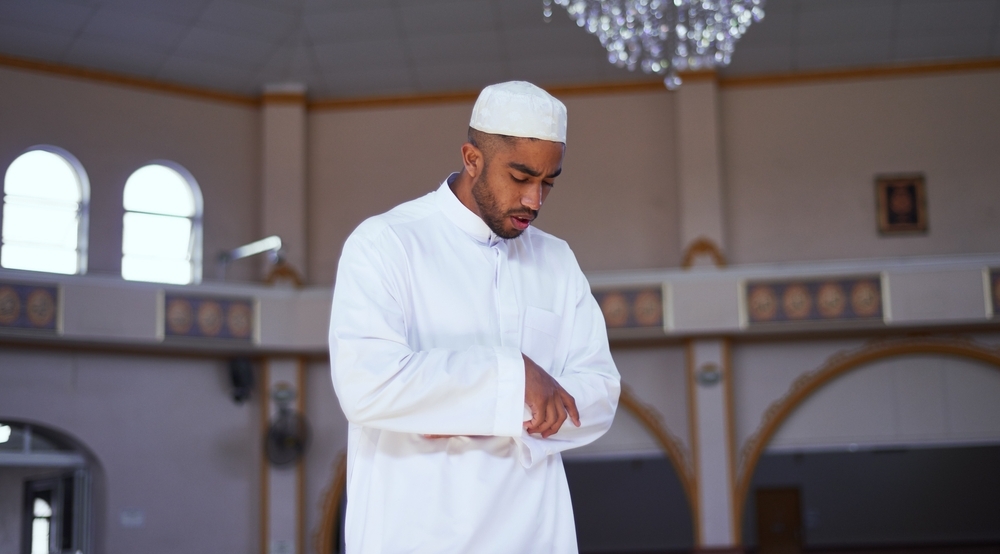Is It Allowed to Remain Silent during the Third Cycle of the Maghrib Prayer?
Answered by Ustadh Sufyan Qufi
Question
Could you please confirm if these 2 points in regard to the third rakat of Maghrib are correct:
1) Recitation is not obligatory
2) It is fard to sit for the length of the recitation of the tashahhud, but it is wajib to recite it
Answer
In the name of Allah, Most Compassionate, Most Merciful,
I pray this finds you in the best of states.
1. Yes, reciting the Fatiha is not obligatory in the third cycle of the Maghrib prayer. The believer has the choice between reciting the Fatiha, reciting three glorifications (saying three times: “Subhan Allah”), or remaining silent for the duration of a glorification. [Maydani, Lubab; Babarti, Inaya]
The reason for this is that it has been established through sound narrations that merely saying the glorifications in the third and fourth cycles of the prayer has been the practice of Ali Ibn Abi Talib, Ibn Mas‘ud, and ‘Aisha (may Allah be pleased with them all). [Al-Ayni, Binaya]
Sound narrations from Ali and Ibn Mas‘ud (may Allah be pleased with them) allowing the believer to choose between reciting the Fatiha, performing the glorifications, and remaining silent have been established and are personally narrated by Imam Kasani (may Allah be pleased with him) in his book Badai’ As-Sanai’, one of the main references in the Hanafi school. He mentions here that this type of knowledge cannot be deduced rationally. Thus this knowledge has been taken directly from the Messenger of Allah (Peace and Blessings be upon Him).
Nonetheless, it remains superior to recite the Fatiha in the third and fourth cycles in order to ensure that one’s prayer is valid according to all schools of Fiqh. [Al-Ayni, Binaya]
This is strengthened by the fact that Ibn Al-Humam (May Allah be pleased with him) gives precedence to a narration from Abu Hanifa establishing the necessity (wujub) to recite the Fatiha in the third and fourth cycles. [Maydani, Lubab]
2. Yes, your understanding is correct. It is obligatory (Fard) to remain in the sitting position for the duration of the Tashahud. As long as this has been performed, even without actually reciting the Tashahud, the prayer will remain valid. [Shurunbulali, Nur al-Idah]
As for actually reciting the Tashahud during the last sitting, it is necessary (wajib). This means that omitting it won’t invalidate the prayer. Nonetheless, forgetting about it will necessitate performing the prostrations of forgetfulness at the end of the prayer. And omitting them intentionally is sinful, and repeating this prayer becomes necessary (wajib) despite its validity. [Ibid]
And Allah knows best.
Wassalam
[Ustadh] Sufyan Qufi
Checked and Approved by Shaykh Faraz Rabbani
Ustadh Sufyan Qufi is an advanced seeker of knowledge, originally from Algeria, who grew up in France. He began searching far and wide for answers to the fundamental questions of life and was disappointed at the answers he found. Then he connected with various traditional teachers and gradually connected with SeekersGuidance. He embarked on his journey of learning through the various teachers at SeekersGuidance, including his mentor Shaykh Faraz Rabbani. He studied numerous texts in Islamic Law, Theology, Hadith, and other areas with Shaykh Faraz Rabbani and other teachers, including Shaykh Abdurrahman al-Sha‘ar, Shaykh Ali Hani, and others. He is an active instructor at SeekersGuidance and answers questions through the SeekersGuidance Answers Service.
